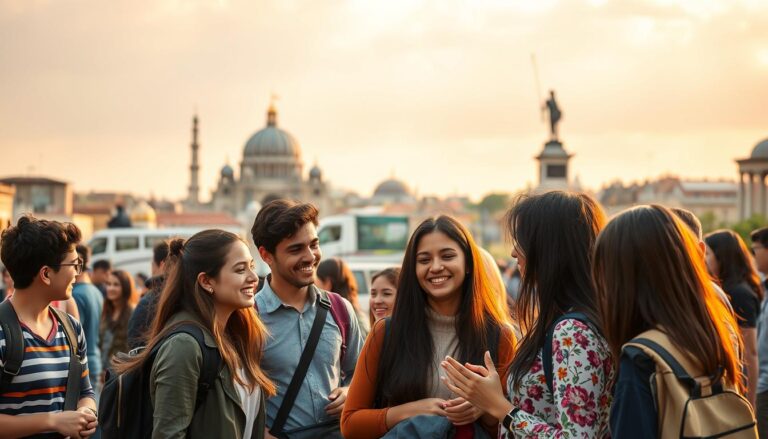Have you ever wondered how to pursue a medical degree abroad without falling into the trap of hidden fees or scams? Many students dream of studying medicine, but the fear of unnecessary costs and fraudulent practices often holds them back. We’re here to guide you through the process of achieving your dream without compromising your finances or safety.
In Russia, admission to medical universities is based on eligibility criteria like NEET scores, marks in PCB, and minimum age. This transparent process ensures that students can secure a seat without paying any donation fees. The degree, recognized globally by WHO and NMC, opens doors to a successful medical career.
With over 5,000 Indian students enrolling annually, Russia has become a preferred destination for medical education. Our article will walk you through the admission process, cost details, and how to identify genuine universities. Stay informed and make the right choice for your future.
MBBS in Russia without donation: An In-Depth Overview
Pursuing a medical degree abroad can be a life-changing decision, but it’s crucial to avoid unnecessary costs and scams. Russian medical universities offer a transparent and reliable admission process, ensuring students can focus on their education without worrying about hidden fees.
Key Features and Global Recognition
Russian medical universities are known for their high standards and global recognition. Here are some key features:
- Government-funded institutions maintain competitive rankings and infrastructure.
- Degrees are recognized by WHO, NMC, and other global organizations.
- English-medium courses make it easier for international students to adapt.
- Small class sizes ensure personalized attention and better learning outcomes.
How Direct Admission Avoids Scams and Extra Fees
The direct admission process is designed to be transparent and student-friendly. Here’s how it works:
- No donation or capitation fees are required, making it affordable for students.
- Admission is based on eligibility criteria like NEET scores and academic performance.
- Detailed steps and guidelines ensure a smooth application process.
This system eliminates the risk of scams and ensures that students can pursue their dreams without financial stress.
Admission Process and Eligibility for Indian Students
Navigating the application steps for a medical degree overseas is simpler than you think. For Indian students, the process is transparent and well-structured, ensuring a smooth journey from application to enrollment. Let’s break it down step by step.
Step-by-Step Admission Process
The admission process begins with submitting essential documents like scanned mark sheets and NEET scores. Once the initial documents are verified, students may need to take an online entrance test. This ensures transparency and avoids any fraudulent practices.
After clearing the test, students receive an invitation letter from the university. The next steps include visa processing and assistance with travel and hostel arrangements. Our team ensures that every student is guided through these stages without any hassle.
Eligibility Requirements and NEET Qualification
To be eligible, Indian students must meet specific criteria. A minimum of 50% marks in Physics, Chemistry, and Biology (PCB) is required. Additionally, qualifying the NEET exam is mandatory for admission to medical programs abroad.
Age is another important factor. Students must be between 17 and 25 years old by December 31 of the admission year. For SC/OBC/ST students, the minimum marks in PCB are relaxed to 45%.
| Requirement | Details |
|---|---|
| Minimum Marks in PCB | 50% (45% for SC/OBC/ST) |
| NEET Qualification | Mandatory |
| Age Limit | 17-25 years |
| Admission Timeline | May 1 to September 15 |
We also assist with additional requirements like passport submission and bank procedures. Adhering to deadlines is crucial to secure a spot in a reputable medical university. For more details on alternative options, check out our guide on MBBS without NEET for Indian students.
Cost, Fees, and Affordable Living in Russia
Understanding the cost structure of studying medicine abroad is essential for making informed decisions. Russia stands out as a budget-friendly destination for students seeking quality education without breaking the bank. Let’s explore the expenses involved and how you can manage them effectively.
Tuition Fees, Hostel Costs, and Exchange Rates
One of the biggest advantages of studying in Russia is the affordability of tuition fees. Government subsidies keep costs low, making it accessible for international students. Annual fees typically range from INR 2.5 lakhs to INR 6 lakhs, depending on the university.
Hostel accommodation is another cost-effective option, with monthly expenses ranging from $100 to $150. Private apartments are also available for those who prefer more independence. Additionally, the exchange rate between the Ruble and the Indian Rupee further reduces overall expenses.
| University | Annual Tuition Fee (INR) |
|---|---|
| Bashkir State Medical University | 4.64 Lakhs |
| Orel State University | 2.84 Lakhs |
| Kazan Federal University | 6.27 Lakhs |
| Crimea State Medical University | 3.35 Lakhs |
Scholarships, Grants, and Financial Benefits
Russia offers various scholarships and grants to support deserving students. These financial aids can cover tuition fees, hostel costs, or even living expenses. Many universities also provide merit-based scholarships for academic excellence.
For example, the Russian government offers the “Open Doors” scholarship for international students. Additionally, some universities have partnerships with organizations that provide grants. These opportunities make it easier for students to focus on their studies without financial stress.
If you’re looking for more affordable options, check out our guide on study MBBS abroad at low cost.
Quality of Education and Student Life in Russian Medical Universities
Studying medicine in a foreign country offers a unique blend of academic rigor and cultural exposure. Russian medical universities are renowned for their high standards, modern facilities, and supportive environment. Let’s explore what makes these institutions stand out.
Curriculum, Clinical Training, and Faculty Excellence
The MBBS program in Russian universities is designed to provide a strong foundation in medical sciences. The first few years focus on theoretical subjects like anatomy, physiology, and biochemistry. Later, students engage in hands-on clinical training at affiliated hospitals.
Experienced faculty members, many with decades of teaching and research experience, guide students through this journey. Their expertise ensures that students gain both knowledge and practical skills essential for a successful medical career.
Modern Infrastructure and Hostel Facilities
Russian medical universities boast state-of-the-art infrastructure. Campuses are equipped with advanced laboratories, digital libraries, and well-maintained hospitals for clinical practice. These facilities create an ideal learning environment for students.
Accommodation options include secure and comfortable hostels with modern amenities. Many hostels provide study rooms, recreational areas, and cafeterias, ensuring a balanced student life.
Community, Class Size, and Cultural Integration
Small class sizes, typically 12-15 students, allow for personalized attention and interactive learning. This setup fosters better understanding and effective doubt-clearing sessions.
The diverse student community includes individuals from over 170 countries. This multicultural environment encourages cultural exchange and builds lifelong networks. Indian students, in particular, find it easy to adapt and thrive in this supportive setting.
Recognition, Career Opportunities, and International Exposure
A globally recognized medical degree opens doors to endless opportunities for students. The MBBS program in Russian universities is highly valued worldwide, thanks to its recognition by esteemed organizations like WHO and NMC. This ensures that graduates can pursue careers or further studies in various countries.
WHO and NMC Recognitions for Global Validity
The MBBS degree from Russian universities is recognized by the World Health Organization (WHO) and the National Medical Commission (NMC). This recognition allows graduates to appear for qualifying exams like the FMGE in India or NEXT in other countries. It also ensures that the degree is accepted globally, enabling students to practice medicine in different parts of the world.
Career Pathways and Post-Graduation Prospects
Graduates have a wide range of career options to choose from. They can pursue advanced specializations, work in government or private hospitals, or even continue their education abroad. The international exposure gained during the course prepares students to adapt to diverse healthcare systems and cultures.
| Career Pathway | Details |
|---|---|
| Specialization | Pursue MD, MS, or other post-graduate courses in fields like surgery, cardiology, or pediatrics. |
| Government Hospitals | Work in public healthcare systems after clearing qualifying exams. |
| Private Practice | Start your own clinic or join private healthcare institutions. |
| International Opportunities | Practice medicine in countries like the USA, UK, or Canada after meeting local licensing requirements. |
Studying in a diverse environment also enhances cultural understanding and builds a global network. This exposure, combined with the quality of education, ensures that students are well-prepared for a successful medical career.
Conclusion
Choosing the right path for a medical career requires careful planning and reliable information. Studying in a reputable medical university offers Indian students a transparent admission process, affordable fees, and globally recognized degrees. This ensures a scam-free and rewarding educational experience.
The quality of education, combined with modern infrastructure and clinical training, prepares students for a successful career. The supportive environment and diverse student community make it easier to adapt and thrive in a foreign country.
We encourage prospective students to conduct thorough research and choose authentic institutions. For detailed guidance on starting your journey, explore our resources or get in touch with us. Take the next step with confidence toward a fulfilling career in medicine.




